Den's Story
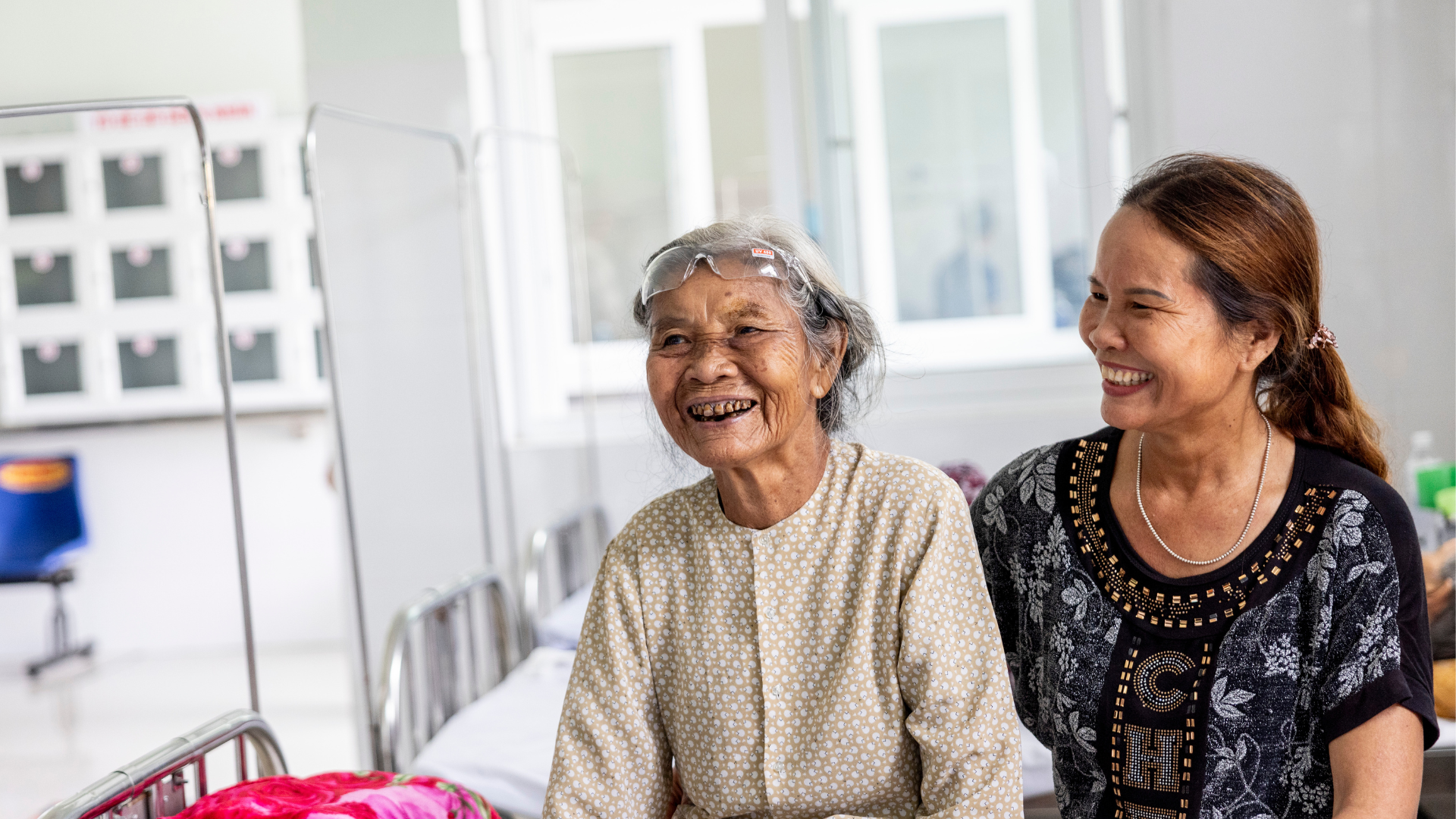
In her modest house in Central Vietnam’s Quang Nam province, 82-year-old Tran Thi Den had almost everything she needed to live a healthy, independent life—until her world went dark because of cataracts.
Den’s blurry vision slowly chipped away at her independence. She coped as best she could until she fell in her own home. She started using a cane but struggled with basic tasks like plugging in electrical appliances and cooking in her dark, smoky kitchen. Her family knew it was no longer safe for her to live on her own.
After living alone for 45 years, blindness threatened to take Den’s independence.
Luckily, one of Den's neighbors told her about a community eye screening near her home—organized by The Fred Hollows Foundation, Quang Nam Eye Hospital, and the Association of Older People. The screening is vital for the many older people who cannot afford treatment, are unaware it’s available, or feel they are too old to have their vision restored.
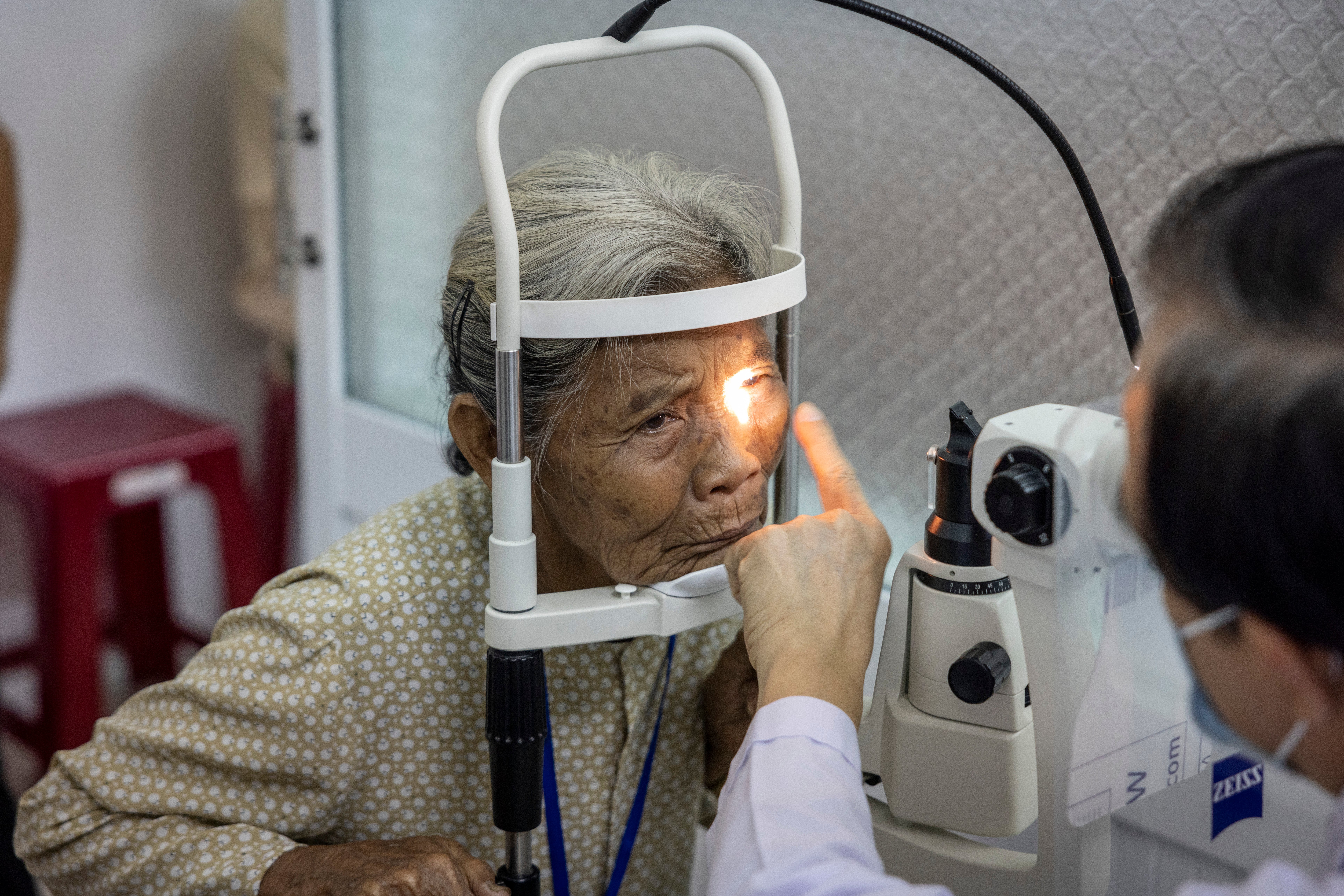
Photo credit: Michael Amendolia
Den was diagnosed with cataracts in both eyes and scheduled for surgery the next day at Quang Nam Eye Hospital.
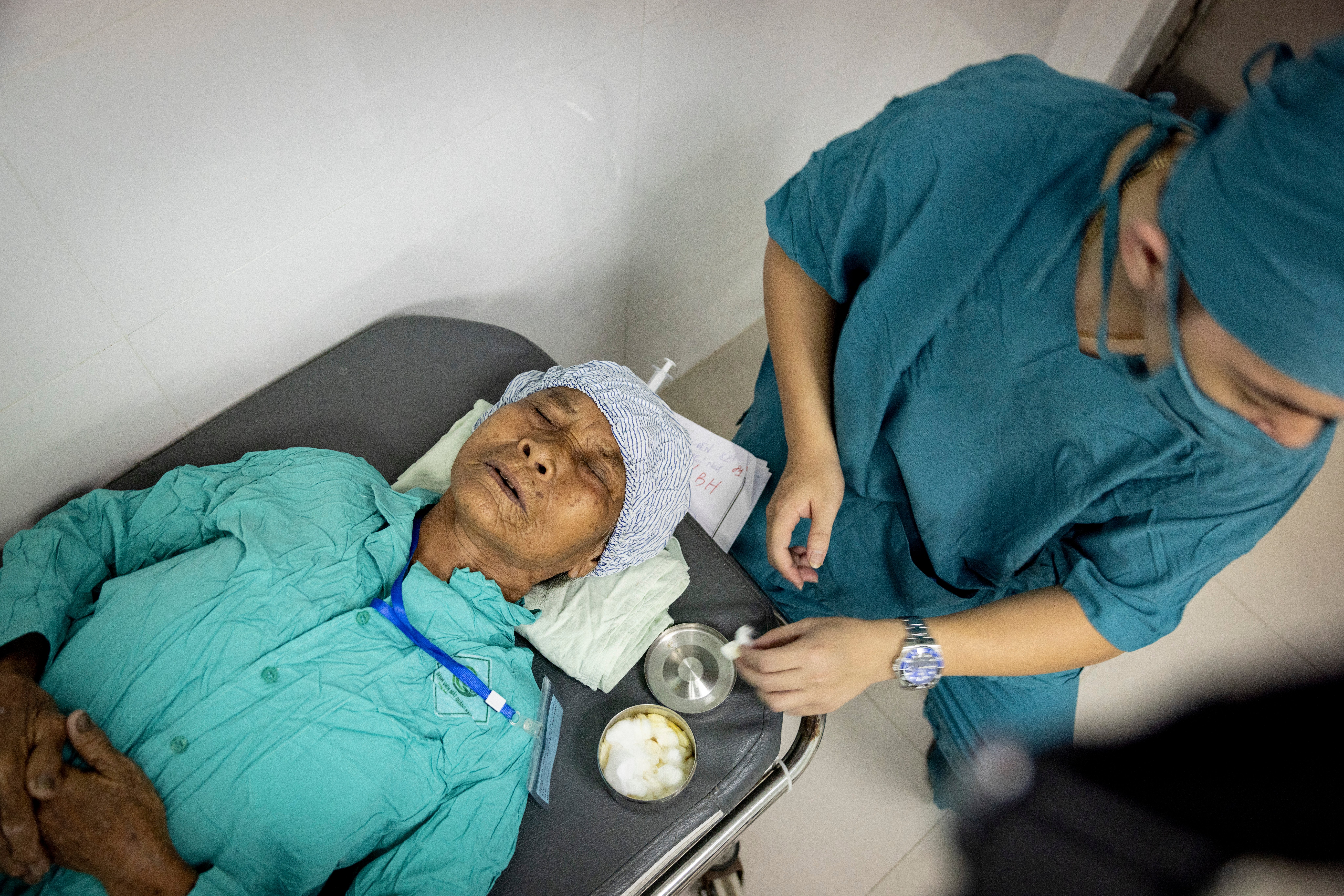 Photo credit: Michael Amendolia
Photo credit: Michael Amendolia
Fred's promise to Vietnam
The Foundation has a long history in Vietnam. Fred Hollows first arrived there in 1992 with plans to help local surgeons improve their cataract surgery skills.
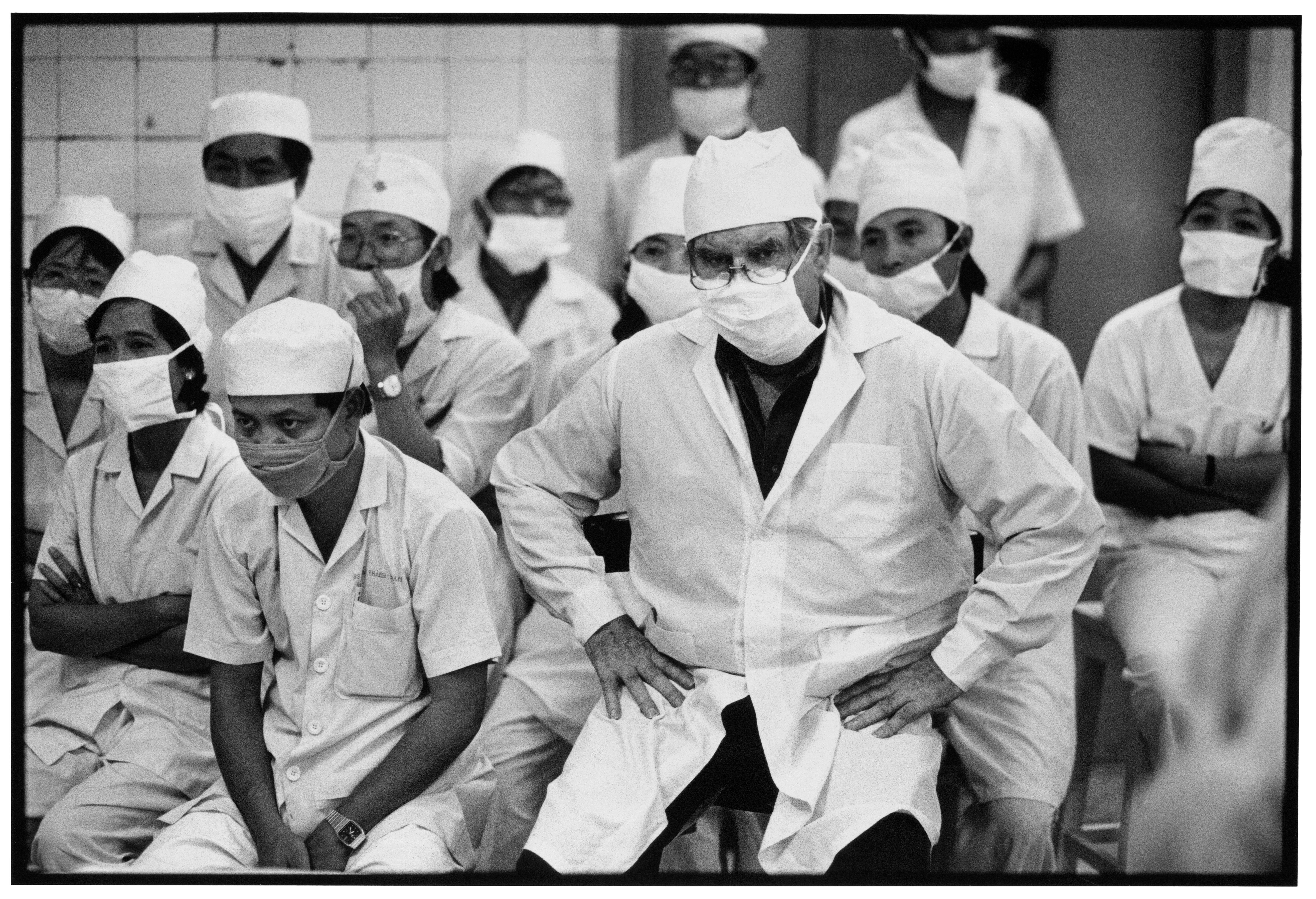 Photo credit: Michael Amendolia
Photo credit: Michael Amendolia
Fred Hollows in 1992 in Vietnam with his mask and scrubs on, surrounded by Vietnamese surgeons in training.
The team learned that only 50 “modern” cataract surgeries were being performed in Vietnam each year by just two eye surgeons. Fred asked the surgeons if they wanted to learn the new techniques, and they were overwhelmingly eager.
Fred made a promise to return to Vietnam and train the country’s ophthalmologists.
He famously checked himself out of the hospital when he was gravely ill with cancer to return and keep his promise to train ophthalmologists in modern cataract surgery techniques.
Over the next few years, despite Fred’s death, more than 300 Vietnamese eye doctors were trained in modern surgical techniques.
Vietnam has come so far. But older people like Den are still being left behind.
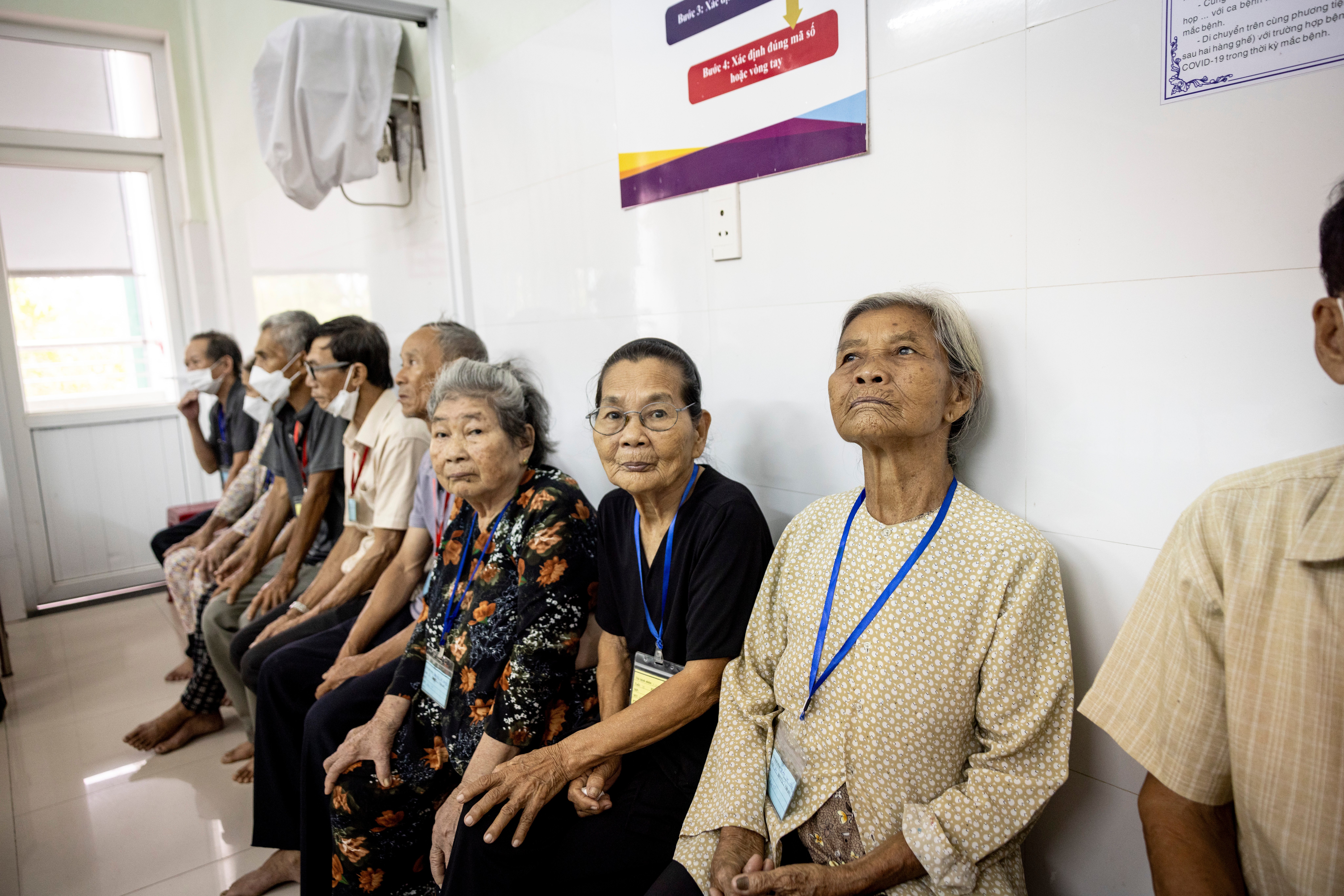 Photo credit: Michael Amendolia
Photo credit: Michael Amendolia
Today, an estimated 73 percent of people living with avoidable vision impairment are older adults. Vietnam has one of the fastest-aging populations in the world, and its older people are increasingly affected by vision loss.
Among people over 50 in Vietnam, cataracts are the most common cause of blindness. Many people are afraid of surgery, cannot afford treatment, don’t know it’s available, or feel they are too old to have their vision restored.
Women continue to shoulder 56 percent of vision loss cases in older adults. And the repercussions extend far beyond the individual. Caregivers—usually women and girls—often grapple with the difficult task of balancing their own needs with those of older family members experiencing vision loss. This can lead to anxiety, depression, and lost opportunities for education or earning a livelihood.
Blindness won’t hold Den back anymore
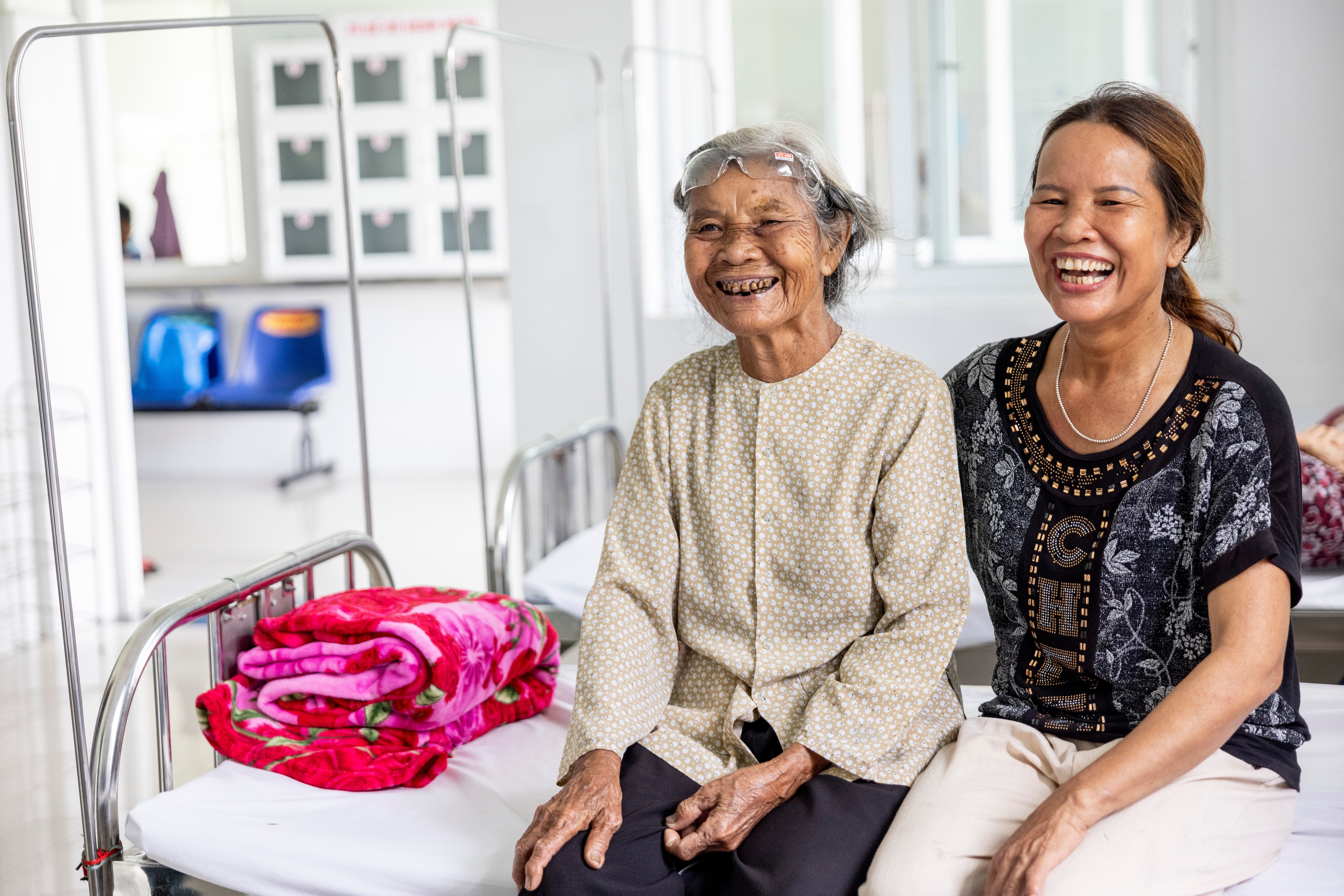 Photo credit: Michael Amendolia
Photo credit: Michael Amendolia
When Den’s patch was removed, her entire face lit up with joy. She was thrilled with the result and couldn’t wait to tell her friends and family.
“I told my friends that my eye is clearer now—I’m very happy with my surgery.”
“Now I’d like to visit my neighbors and my grandchildren—and I can live alone in my home.”
At 82, there is still so much Den wants to see and do. And thanks to your support, she can.
“I will take care of my grandchildren. I want them to grow strong and healthy, study well, get a good job and income, then get married and be happy,” she said.